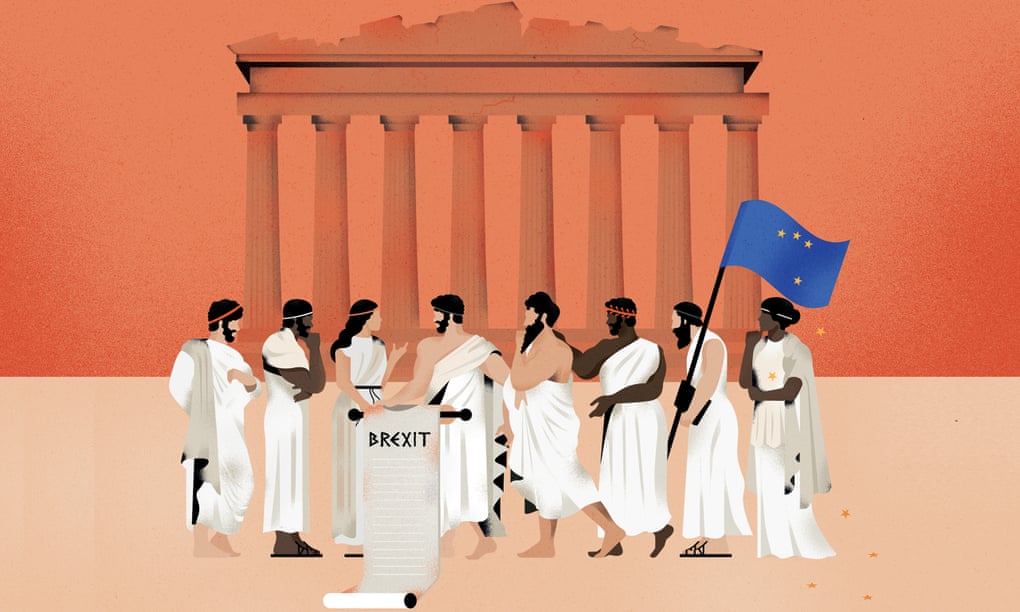This is the end-of-year summary of notable sortition related events for 2018.
 Sortition received some increasing attention in the English-speaking world in 2018. The Hannah Arendt Center for Politics and Humanities at Bard College has announced the creation of the Bard Institute for the Revival of Democracy through Sortition. Richard Askwith and Tim Dunlop published books advocating for sortition. Selina Thompson put on a sortition-themed play and organized a sortition-themed workshop. Van Reybrouck’s Against Elections was (dismissively) reviewed in the New York Times. Sortition was featured in the Left-leaning magazine Jacobin as well as on BBC radio, and was mentioned in the Washington Post. Canadian scientist and environmentalist expressed interest in drawing politicians from a hat.
Sortition received some increasing attention in the English-speaking world in 2018. The Hannah Arendt Center for Politics and Humanities at Bard College has announced the creation of the Bard Institute for the Revival of Democracy through Sortition. Richard Askwith and Tim Dunlop published books advocating for sortition. Selina Thompson put on a sortition-themed play and organized a sortition-themed workshop. Van Reybrouck’s Against Elections was (dismissively) reviewed in the New York Times. Sortition was featured in the Left-leaning magazine Jacobin as well as on BBC radio, and was mentioned in the Washington Post. Canadian scientist and environmentalist expressed interest in drawing politicians from a hat.
Brett Hennig’s TED talk about sortition was featured by TED on their main page, generating a spike of interest in the idea, including by Beppe Grillo, co-founder of the Italian electorally successful Five Star movement. Another spike of interest in sortition followed media reports about the arrest of a sortition advocate who allegedly planned to blow himself up in an attempt to draw attention to the idea.
Late in the year, sortition was on the agenda of two mass-action movements: UK’s Extinction Rebellion and France’s Gilets Jaunes.
Earlier in the year elites continued to express their dissatisfaction with the way elections are turning out. A proposal was made to use sortition to improve citizen behavior. Former UK prime minister Gordon Brown made a similar suggestion in the context of Brexit. The Ireland abortion referendum that approved the recommendations of an allotted chamber was held as an example to emulate.
Reports about sortition being used or advocated at local government appeared in the press. An initiative for appointing judges by lot is under way in Switzerland. Charlie Pache, a Swiss sortition activist, promotes single issue allotted citizen panels. Academic conferences about sortition were held in Belgium and in the US.
In France, the discussion has moved beyond the initial stage of unfamiliarity into some substantive discussion of the details of applications of sortition. A member of La France insoumise who was allotted to its electoral committee expressed disillusionment with the process. Other FI activists claim that “so far, the allotted have had no real power”. Michel Quatrevalet, a power industry professional in France, complains that the so-called participatory democracy process that was part of the process for the creation of a French multi-year energy plan was a sham.
Filed under: Academia, Books, Elections, Mass action, Press, Proposals, Sortition | 11 Comments »
 The Democratic party has announced its planned schedule for primary debates for the 2020 presidential race. To handle the possibility of there being many candidates, the DNC plans, if necessary, to split the field into two groups, and having those groups debate in two consecutive nights. The split will be at random:
The Democratic party has announced its planned schedule for primary debates for the 2020 presidential race. To handle the possibility of there being many candidates, the DNC plans, if necessary, to split the field into two groups, and having those groups debate in two consecutive nights. The split will be at random:






 This is the yearly call for input for the year’s end review. As in previous years, I would like to have a post or two summarizing the ongoings here at Equality-by-Lot and notable sortition-related events over the passing year. Any input about what should be included is welcome – either through comments below or via email. You are invited to refresh your memory about the events of the passing year by browsing Equality-by-Lot’s archives.
This is the yearly call for input for the year’s end review. As in previous years, I would like to have a post or two summarizing the ongoings here at Equality-by-Lot and notable sortition-related events over the passing year. Any input about what should be included is welcome – either through comments below or via email. You are invited to refresh your memory about the events of the passing year by browsing Equality-by-Lot’s archives.